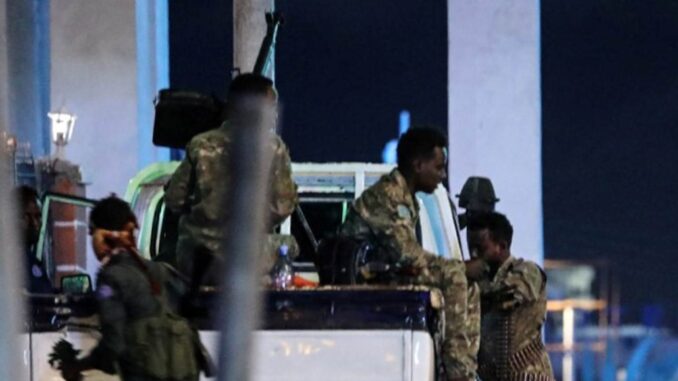
The University of Pretoria’s Centre for the Advancement of Scholarship; the Sweden-based Nordic Africa Institute; and the Konrad Adenauer Stiftung, recently convened a high-level policy dialogue in Addis Ababa on “Pax Africana and Africa’s Post-Cold War Security Architecture.”
Late Kenyan scholar, Ali Mazrui, had coined the concept of “Pax Africana” in 1967, calling for Africans to consolidate peace on their own continent. Twenty-five years later, Egyptian United Nations (UN) Secretary-General, Boutros Boutros-Ghali crafted An Agenda for Peace: a landmark document on the tools and techniques of conflict management for a post-Cold War era.
The recent spate of military coups d’état in Mali, Guinea, Burkina Faso, and Chad were noted as worrying trends that reflected the failure of African governments to promote democratic governance and tackle the root causes of conflicts. The role of national, regional, and external actors was highlighted as critical to successful mediation. Building trust among domestic parties in mediating conflicts is crucial, and often requires time and patience that is frequently lacking.
The painstaking process of reconciling grassroots communities has sometimes been abandoned for rehabilitation, and inadequate peacebuilding has often led to a resumption of conflicts. Some of these mediation efforts in Sudan and South Sudan tend to represent elite pacts that do not properly consult grassroots actors. The inclusion of women in peace processes is particularly difficult to achieve in places such as northern Uganda and the Democratic Republic of the Congo (DRC). There is also a need to ensure that women who are included in mediation teams are independent, impartial, and credible.
A proposed 25,000-strong African Standby Force which should have been established in 2010, remains a work in progress. In order to strengthen Africa’s security architecture, funding and logistics are essential. The AU Peace Fund has raised $348 million, which should help support African-led missions in Mozambique and the eastern Congo. The UN was accused, while “rehatting” regional peacekeepers, of failing to recognize the sacrifices – in blood and treasure – of African peacekeepers.
The European Union has been the largest funder of peace and security initiatives in Africa, contributing 90% of the African Peace Facility’s funds (Є3.2 billion) between 2004 and 2022. Brussels has proposed six building blocs for its renewed security engagement with Africa: strategic cooperation involving joint decision-making; conflict prevention; respect for governance and human rights; strengthening the fight against terrorism in regions like the Sahel and the Horn of Africa; supporting African conflict management efforts through capacity-building; and strengthening multilateralism and promoting convergence in multilateral fora.
The military roles of Ethiopia, Kenya, and Uganda in Somalia were said to have heightened historical tensions. In the DRC, the UN worked closely with the mediation led by South African president, Thabo Mbeki, which produced the 24-month power-sharing deal in 2003. It was important, in this case, to craft strategies to deal with regional “spoilers” – Rwanda and Uganda – which were intervening in the Congo. The accord in the DRC was, however, criticised as representing an elite pact in which power was shared to the exclusion of civil society. It was also noted that president Joseph Kabila was able to use his continued control of the country’s security structures to retain an advantage during the transitional period.
Powerful actors on the UN Security Council have sometimes obstructed successful mediation. The case of the US and France in protecting Morocco in the Western Sahara dispute was cited as having stalled implementation of the UN peace accord since 1991. Likewise, the role of the US, Turkey, and Gulf Arab states was said to have prolonged the stalemate in Somalia. Washington’s drone warfare and support for the Somali army was further highlighted as having fuelled instability in the East African country.
Professor Adebajo is a Senior Research Fellow at the University of Pretoria’s Centre for the Advancement of Scholarship in South Africa.
END

Be the first to comment